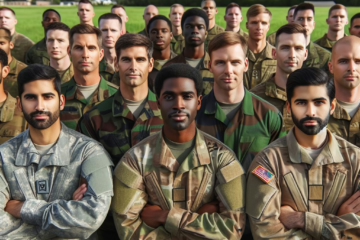Traveling internationally can be an exhilarating experience, offering new sights and cultures to explore. However, navigating the complexities of airport immigration can be daunting, especially when it involves understanding your legal rights. This article provides a comprehensive guide to help travelers understand the nuances of airport immigration, with a focus on the legal rights you hold when passing through international checkpoints. From understanding the protocols of immigration officers to knowing which documents are essential for travel, this guide aims to equip you with the knowledge needed to ensure a smooth journey through international airports.
Table of contents
Navigating International Airport Immigration
Navigating international airport immigration requires a combination of preparation and awareness. The process typically begins with deplaning and making your way to the immigration checkpoint. It’s essential to follow signs and directions specific to international arrivals, often leading you to separate lanes for citizens, residents, and foreign visitors. These lanes are designed to streamline the process, but it’s crucial to ensure you are in the correct line to avoid unnecessary delays.
Upon reaching the immigration counter, travelers are usually required to present their passport and any necessary visas. It’s advisable to keep these documents easily accessible, as fumbling for them at the counter can cause delays and attract unwanted scrutiny. Furthermore, airports often have kiosks or electronic gates for automated processing, which can expedite the procedure for eligible travelers. Familiarizing yourself with the airport’s specific procedures can save time and reduce stress.
Lastly, it’s important to remain calm and patient during this process. Airports can be busy, and immigration officers work under significant pressure to ensure all regulations are followed. Understanding that delays can occur and preparing mentally for potential waiting times can help maintain a sense of calm. Remember that respectful and courteous behavior can go a long way in facilitating a smoother experience.
Key Legal Rights at Airport Checkpoints
Travelers should be aware of their legal rights when passing through airport immigration checkpoints. One fundamental right is the protection against unlawful searches and seizures, ensuring that any search conducted by immigration officers is reasonable and justified. While officers have the authority to inspect your belongings, they cannot do so arbitrarily. Understanding this right can help you assert yourself if you feel an inspection is unwarranted.
Moreover, travelers have the right to privacy and fair treatment. Immigration officers must adhere to protocols that respect your dignity and privacy. This includes conducting interviews and inspections in a manner that is respectful and non-discriminatory. If you believe your rights are being violated, you may request to speak with a supervisor or seek assistance from your country’s consulate.
Another important right is the ability to seek legal counsel, particularly if you are detained or face potential denial of entry. While the availability of legal assistance may vary by country, knowing that you can request to contact a lawyer, or a consular officer is crucial. Being informed about these rights not only empowers you during your travels but also ensures that you can address any issues effectively should they arise.
Understanding Immigration Officer Protocols
Immigration officers follow specific protocols designed to safeguard national security while facilitating the smooth entry of legitimate travelers. These protocols involve verifying the identity and intent of travelers entering the country. Officers are trained to ask questions that help them ascertain the purpose of your visit, the duration of your stay, and your travel plans. Understanding that these questions are standard procedure can alleviate anxiety and help you prepare your responses.
Officers are also responsible for checking the validity of your travel documents, such as your passport and visa. They may use electronic systems to cross-reference your information with international databases, ensuring that all entries are legitimate. This part of the protocol is critical for maintaining border security and preventing unauthorized entry.
In addition, immigration officers are trained to observe traveler behavior for any signs of stress or deception that may indicate potential issues. It’s important to remain composed and honest in your interactions. Being aware of these protocols can help you understand the officer’s perspective and maintain a cooperative attitude during the process.
Essential Documents for International Travel
When preparing for international travel, having the right documents is crucial to ensuring a smooth immigration process. The most important document is your passport, which must be valid for at least six months beyond your intended stay in many countries. Additionally, depending on your destination, you may need a visa, which should be applied for well in advance of your trip.
Another essential document is proof of onward travel, such as a return ticket or an itinerary that demonstrates your plans to leave the country after your stay. Some countries also require evidence of sufficient funds to support yourself during your visit. Having these documents readily available can facilitate a quicker and easier immigration process.
Travelers should also consider carrying a copy of their accommodation details. This information can be useful if an immigration officer requests to know where you will be staying. Keeping both physical and digital copies of these documents can provide an added layer of security in case of loss or theft.
Responding to Immigration Officer Questions
Responding to questions posed by immigration officers is a critical aspect of the airport immigration process. Officers typically ask about the purpose of your visit, whether it is for tourism, business, or visiting family. Being clear and concise in your answers can help expedite the process. It’s important to provide honest and straightforward responses, as any inconsistencies may lead to further questioning or inspection.
Immigration officers may also inquire about the duration of your stay and your travel plans within the country. Having a clear itinerary and being able to articulate your plans can demonstrate your preparedness and intention to abide by the country’s laws. If you are unsure about any details, it’s better to admit uncertainty rather than provide potentially misleading information.
In some cases, officers might ask about your employment status or financial means. These questions are designed to assess your ability to support yourself during your stay. Being prepared with evidence of employment or financial stability can help satisfy these inquiries. Remember, the key is to remain calm, respectful, and cooperative throughout the interaction.
Protecting Your Legal Rights During Inspection
During an inspection, it is vital to be aware of your legal rights and how to protect them. If you are subjected to a search, you have the right to know the reason for it. While immigration officers have broad authority, searches must be conducted within the bounds of the law. You may politely ask for clarification if you feel the search is invasive or unwarranted.
If you find yourself in a situation where you believe your rights are being violated, you have the right to request the presence of a supervisor. This can provide an additional layer of oversight and help resolve any misunderstandings. Documenting the details of the interaction, such as the officer’s name and badge number, can also be beneficial if you need to file a complaint later.
Finally, if you are detained, you have the right to contact your country’s embassy or consulate. Consular officers can provide assistance and ensure that you are treated fairly according to international laws and agreements. Knowing these rights and how to assert them can be empowering, ensuring that you navigate the immigration process with confidence and security.
Understanding your legal rights with airport immigration is an essential component of international travel. By familiarizing yourself with the protocols and procedures, you can ensure a smoother journey and protect yourself against potential issues. Remember that preparation is key having the right documents, understanding the role of immigration officers, and knowing your rights can make the difference between a stressful experience and a seamless transition through airport checkpoints. With these insights, you can travel with greater confidence, knowing that you are well-equipped to handle any challenges that may arise.
Frequently Asked Q&A
What documents are required for international travel?
You typically need a valid passport, necessary visas, proof of onward travel, accommodation details, and evidence of sufficient funds.
How can I prepare for immigration checks?
Organize your documents for easy access, be familiar with your travel plans, and remain calm and polite during interactions.
What rights do travelers have at immigration checkpoints?
Travelers have the right to fair treatment, privacy, and to request legal counsel or consular assistance if detained.
Can immigration officers search my belongings?
Yes, but searches must be reasonable and justified, adhering to protocols that respect your rights.
What should I do if I feel my rights are violated?
Politely request to speak with a supervisor, document the incident, and consider filing a formal complaint if necessary.
How do I handle questions about my travel plans?
Provide clear and honest answers, and be ready to show supporting documents such as an itinerary or accommodation details.
What should I do if I am detained at immigration?
Request to contact your country’s consulate or seek legal assistance. Stay calm and document all interactions.
Do I have the right to refuse a search?
No, you must comply with reasonable search requests, but you can ask for clarification if you feel it’s unwarranted.
How can I expedite the immigration process?
Use electronic kiosks if available, ensure all documents are ready, and follow signage to the correct processing lanes.
What are the consequences of lying to an immigration officer?
Providing false information can lead to denial of entry, detention, or future travel bans.
What is the role of immigration officers?
Officers verify travelers’ identity, intent, and documents to ensure compliance with national security and entry requirements.
Can I ask for an interpreter during immigration checks?
Yes, you can request an interpreter if language barriers make it difficult to communicate.
How can I prove financial stability during immigration checks?
Provide evidence such as bank statements, a letter from your employer, or proof of sufficient funds for your stay.
What happens if my visa is invalid or expired?
Immigration officers may deny entry, and you may need to apply for a valid visa before attempting to enter again.
Do I need a return ticket to pass immigration?
In most cases, proof of onward travel, such as a return ticket, is required to demonstrate your intent to leave the country after your visit.
Can I be denied entry even with all valid documents?
Yes, if immigration officers suspect fraudulent intent or discover issues during their checks, entry may still be denied.
What is secondary inspection at immigration?
Secondary inspection is a more detailed screening process for travelers requiring further verification of their identity or intent.
What are my rights during secondary inspection?
You have the right to know why you are being inspected and to request legal or consular assistance if detained.
How long can immigration checks take?
Processing times vary depending on the volume of travelers and your individual case but being prepared can help minimize delays.
What should I do if I miss a connecting flight due to immigration delays?
Contact your airline immediately and explain the situation. They may rebook you on the next available flight.
Can I film or record my interaction with immigration officers?
Rules vary by country, but it’s generally best to ask for permission or avoid recording unless absolutely necessary for documentation.


0 Comments